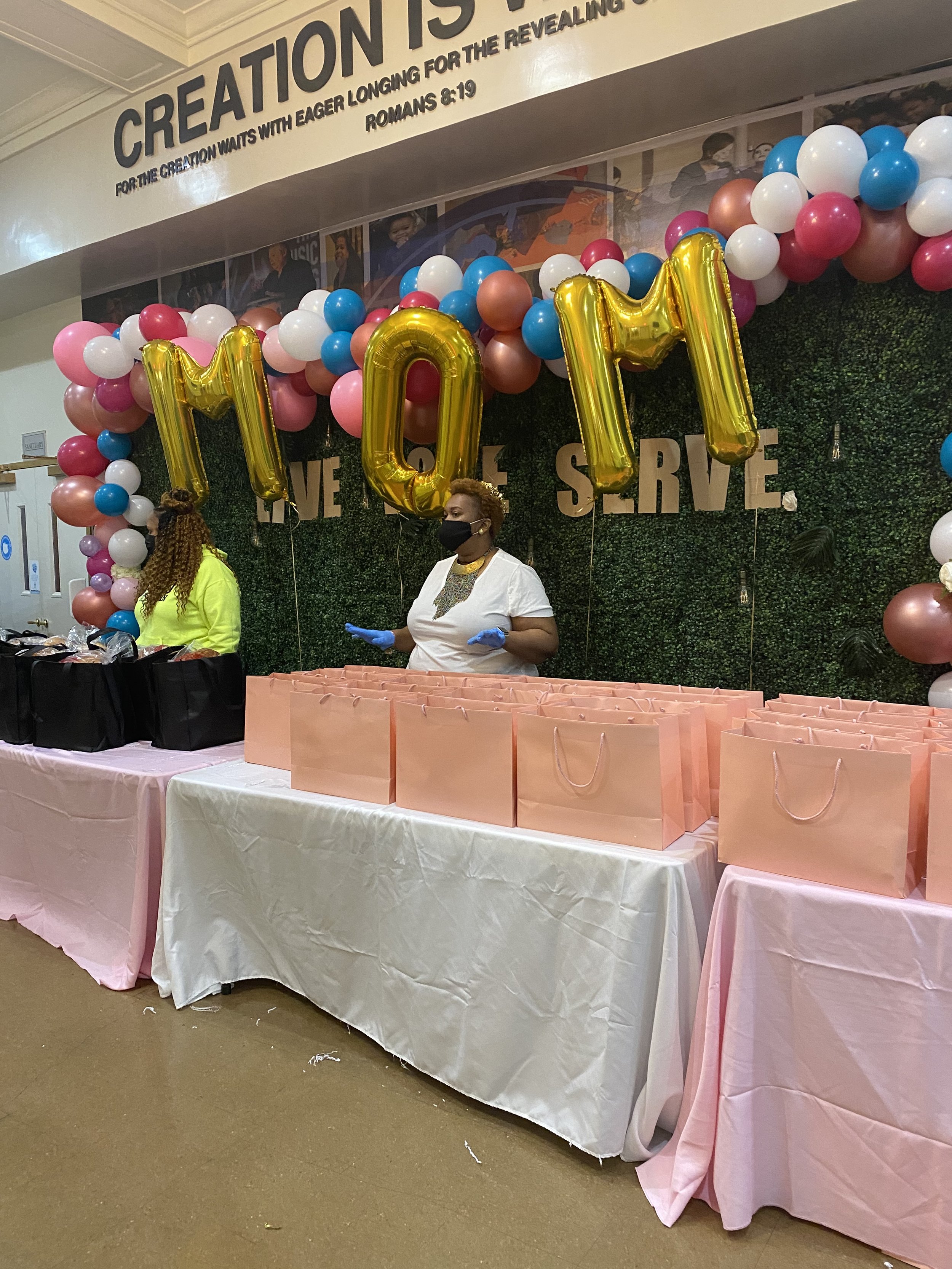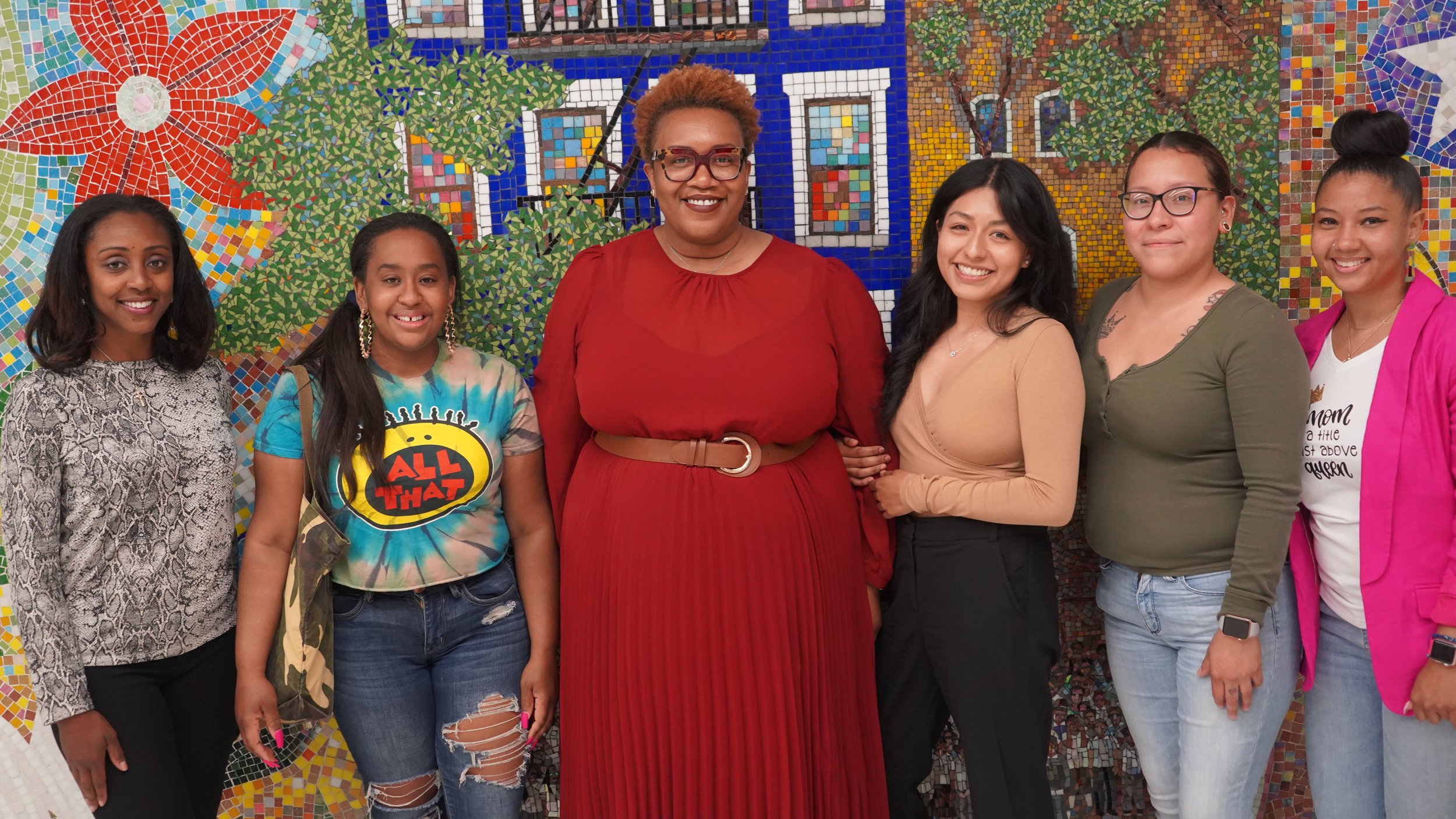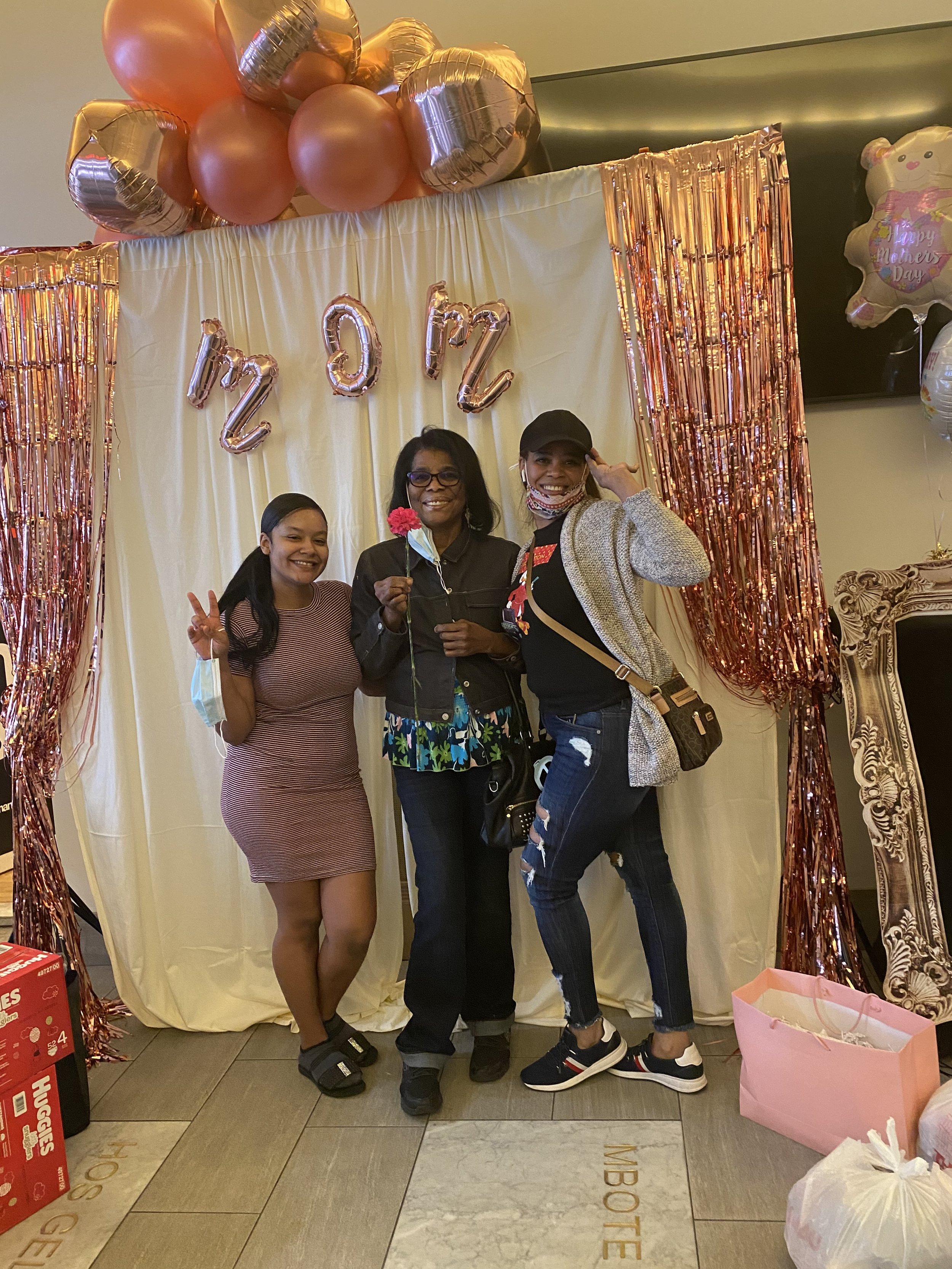
Meet our Fellows
Alisha L. Gordon: The Current Project
New York, New York
Alisha L. Gordon: The Current Project
New York, New York
Supporting the Dreams of Black Single Mothers
“But it is on the thin edge of hope we find the dreams of women. The hope of mothers who carry within them the never-quite-actualized dreams that take up residence in the corners of our minds. The dreams that are waiting for the right time, the right moment, enough money, and enough support.”
~ Alisha Gordon, Reclaiming the Dream: Single Mothers and the Power of Innovation
Alisha Gordon believes in the dreams of Black single mothers. Founder of The Current Project, an advocacy-centered, mission-driven 501(c)(3) organization focused on supporting Black single mothers, Gordon uses her own story and lived experience to offer hope, encouragement, and crucial financial support to single mothers working to complete their education or to jumpstart a viable small business.
About Alisha L. Gordon
Rev. Alisha L. Gordon works at the intersection of faith, culture, and politics. In her blog, Reclaiming the Dream: Single Mothers and the Power of Innovation, Gordon candidly tells her own story of learning she was pregnant while in her senior year at Spelman College, just as she was applying to graduate school in journalism. Her experience as a Black single mother struggling with raising a child, returning to graduate school, coping with student debt, and searching for meaningful work not only informs her work at The Current Project, but inspires others as well. Now an awarded faith leader, preacher and educator, Gordon begins her story with church.
“I start there, as a part of this conversation, because of how much the Black church informed who I ultimately became.”
Gordon grew up in Decatur, Georgia, going to a Southern Missionary Baptist church with her family four times a week. “It was a very essential Southern Baptist church experience, the kind of faith community that was very patriarchal. Women didn’t preach or wear pants or lipstick. It was all the things we often know to be true about conservative evangelical-esque places, but it was also a place that was very formative for me. I remember my dad and the deacons lining hymns, singing without music and using tambourines and foot stomping. It still had this very deeply rooted, African, Black southern church experience, which, with all of its faults, was very informative for me. “
Gordon moved through what she describes as a series of religious transformations – from Southern Baptist, to popular nondenominational “jeans and ripped t-shirts” church, to Pentecostalism, and then was introduced to high church with its liturgical calendar and church seasons while in seminary.
Gordon, the youngest of four children, was a first generation college student and the first in the family to move out of the South. She graduated from Spelman College with a degree in English and then from Candler School of Theology at Emory University in 2015 with a Master of Divinity.
“When I graduated from Candler, I didn't have a job or anything lined up. I was very much a rabble rouser on campus, preaching the gospel and protesting and interrupting chapel and doing all of those good trouble things.” While Gordon was preaching regularly at a United Methodist church in Atlanta where she had interned, she knew that was not her path. “I loved being in that space. But I knew I didn’t want to pastor. I didn’t want what came with it – having to change the essence of who I am to fit into the role.”
Gordon ended up moving to New York in 2016 to take a job as the Executive for Spiritual Growth for the United Methodist Women. She then worked at The Riverside Church in the City of New York as Executive Director of Programs and later as National Director of Faith Based Outreach for Michael Bloomberg’s presidential campaign.
Then the pandemic happened. “The pandemic really gave me the time to think about what I really felt I was called to do. I had all these experiences in my back pocket: from Spelman to becoming a struggling single mom turned high school English teacher, then graduate student. Once I came to New York, I was exposed to a different side of policy making – from the recipient of policies that impacted marginalized people to working in political spaces responsible for creating policy. It was the first time I witnessed policy being created in real time – and often it was by people who were not directly impacted by the issues at hand.”
About the Current Project:
In 2020, Gordon pulled her experiences and ideas about fully resourcing single mothers economically, socially, and politically together into what became The Current Project (TCP). TCP supports the transformation of women by connecting mothers to the resources needed to attain and maintain economic stability.
TCP addresses these systemic issues through a three-pronged approach - education, financial wellness, and small business entrepreneurship.
“This particular demographic faces race, class, and gender challenges, not because they are not smart, not because they’re not innovative, not because they don’t want to, but simply because they cannot afford it.” The Current Project temporarily alleviates the cost of living with financial support while mothers complete a post-secondary degree, earn a work-related certificate, or start a viable, small business. Along with the financial aid, mothers are enrolled in a cohort and offered mental health support, emotional and group encouragement, along with financial literacy education and practical business advice.
This universal basic income model has worked in several places in the US. In Atlanta, Georgia, a new program beginning in 2022 will offer single mothers $850 a month to return to school or create a business.
“All the models show that direct aid works. The critique often is, and this is the systemic racism and gender bias that comes into play, that these poor people who are making bad choices don’t know what to do with the extra $1000 a month. TCP says ‘that’s bullshit’. They absolutely know what to do with $1000 a month -because they’re feeding a family of four off $400 a month. We believe in trusting the genius and innovation of these women, that they will do the right thing for themselves and their families.”
The Current Project board reflects the value of Black women. Of the six board members, three are black women and two are single mothers. Gordon intends to support women as the program expands. “When we have the capacity to hire, we will be prioritizing hiring women of color who have the needed skill set and we will pay them a thriving wage.”
In the past year, TCP has worked to develop the infrastructure needed to support continuing cohorts of mothers. The next plan is to take a cohort of moms through a small business accelerator in which they receive a monthly stipend to cover their costs of living. “Many small business accelerators operate on the notion that the participant has either a full time job or spouse/partner to hold the reigns while they work on their business. TCP understands this is not always the case for Black single mothers so we aim to alleviate that barrier while in the accelerator.”
Gordon’s vision includes accessing capital and corporate support that would allow a single mom with a brilliant small business idea to be sustained while she’s working to get that business off the ground or for a single mother to have access to funds for child care and living expenses while earning a degree.
“Our long-term goal is to continuously create the opportunities in programming that will give us both anecdotal as well as qualitative and quantitative data that can shift policy. Many programs that are focused on single parents are often crisis-centered: eviction, medical bills, rental assistance. And crisis response is important, but it doesn’t always have capacity to address the root of an issue. We’re trying to close an economic gap very much impacted by race and gender.”
Gordon says it is freedom that inspires and sustains her. “I enjoy being able to have the freedom to imagine a new world. It is the freedom of flexibility to create the life that I always wanted to live. And that's a privilege.”
“Toni Morrison said "The function of freedom is to free someone else." And that's what sustains me. I want to do whatever I can to stay free, because it's in my freedom that other people find theirs.”
Profile by Anita Flowers







